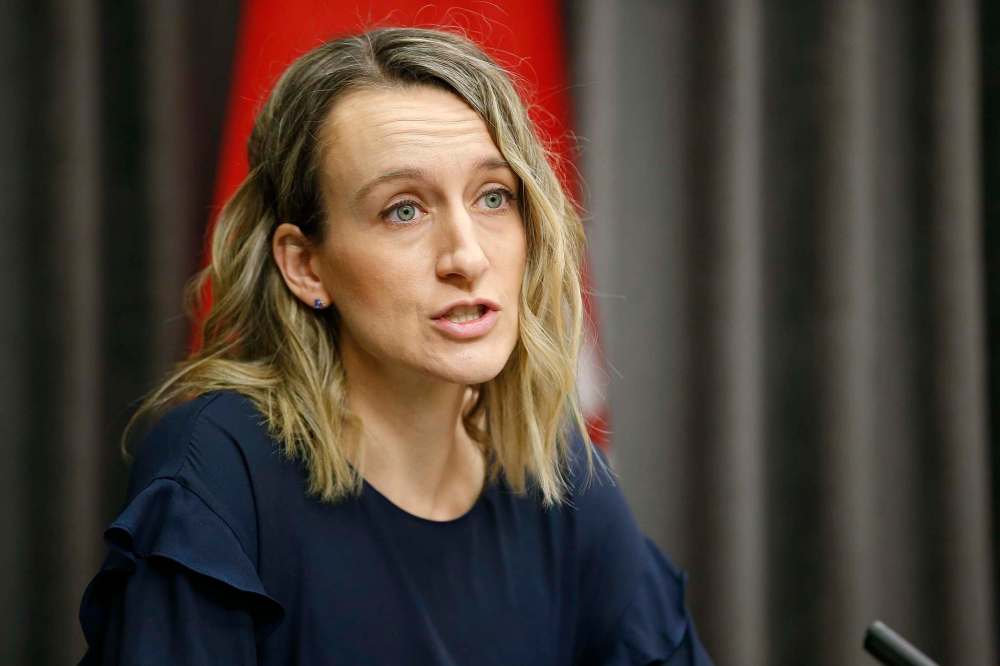Vaccine task force lead tackles misinformation for newcomer community
Advertisement
Read this article for free:
or
Already have an account? Log in here »
To continue reading, please subscribe:
Monthly Digital Subscription
$0 for the first 4 weeks*
- Enjoy unlimited reading on winnipegfreepress.com
- Read the E-Edition, our digital replica newspaper
- Access News Break, our award-winning app
- Play interactive puzzles
*No charge for 4 weeks then price increases to the regular rate of $19.00 plus GST every four weeks. Offer available to new and qualified returning subscribers only. Cancel any time.
Monthly Digital Subscription
$4.75/week*
- Enjoy unlimited reading on winnipegfreepress.com
- Read the E-Edition, our digital replica newspaper
- Access News Break, our award-winning app
- Play interactive puzzles
*Billed as $19 plus GST every four weeks. Cancel any time.
To continue reading, please subscribe:
Add Free Press access to your Brandon Sun subscription for only an additional
$1 for the first 4 weeks*
*Your next subscription payment will increase by $1.00 and you will be charged $16.99 plus GST for four weeks. After four weeks, your payment will increase to $23.99 plus GST every four weeks.
Read unlimited articles for free today:
or
Already have an account? Log in here »
Hey there, time traveller!
This article was published 13/05/2021 (1641 days ago), so information in it may no longer be current.
The lead of Manitoba’s vaccine rollout took questions and addressed concerns from newcomers to the province Thursday afternoon.
“We have seen some patterns emerging where, both in Winnipeg and southern Manitoba, there are some areas that have lower uptake,” Dr. Joss Reimer said.
“And this is a blend of things. We think in southern Manitoba, a lot of it has to do with vaccine hesitancy, beliefs and community views on vaccines, but in Winnipeg, we think it has a lot more to do with barriers to seeking care.”

Many of the largest newcomer groups in Manitoba are over-represented in the province’s data on COVID-19 cases, with Filipino and South Asian populations particularly apparent in case counts.
While 51 per cent of those who tested positive for COVID-19 from May to December 2020 were Black, Indigenous or a person of colour, only 35 per cent of Manitobans belong to those groups.
Around one in three COVID-19 cases in Manitoba are from people working in food manufacturing, and 59 per cent of COVID-19 cases in people of colour are attributed to people working in the industry.
The service industry (15 per cent of all COVID-19 cases in Manitoba) and transportation (11 per cent) are also especially visible in the province’s COVID-19 cases, which correlates with the over-representation of people of colour in the province’s data.
Targeted advertising and the province approaching community and religious leaders to help influence their respective communities to get vaccinated are already underway, but the province is also looking at providing the consent form in additional languages, and bringing more pop-up clinics to areas in Winnipeg with high immigrant populations.
“We know there’s a lot more we could be doing, and we plan to keep improving more and more,” Reimer said.
The vaccine task force lead took questions on improving the rollout to target immigrants and Manitobans not fluent in English or French. She answered more specific questions — regarding conspiracies and myths newcomer groups have heard being shared through social media.
“I know that WhatsApp has been a big source of misinformation. (Fighting misinformation) is a huge challenge for us,” Reimer said.
Myths and conspiracies around the novel coronavirus have been tackled more than once by Val Cavers, executive director at Mosaic Newcomer Resource Centre.
The centre has partnered with the Winnipeg Regional Health Authority and refugee health-care clinic physician Dr. Afsaneh Oliver to hold “ask a doctor” sessions with immigrants, to explain the science behind the process and dispel misinformation.
Oliver is known to many of Manitoba’s refugees — she works at BridgeCare clinic, the initial point of assessment for newly-arrived, government-sponsored refugees — and has held the Q & A clinic in English, Arabic and Tigrinya thus far. Plans are underway to provide the session in Somali, Swahili, and Kurmanji.
Turnout has been unprecedentedly high, Cavers said: 40 people attended a recent session. Many questions revolve around myths around the virus causing side-effects, and conspiracy theories around the vaccine.
“But, for the most part, people are asking the questions that most of us are asking right now, about (vaccine) safety and just wanting to make sure it’s safe for them and their families,” she said.
Mosaic is also helping refugees book vaccine appointments, and will provide support to the pop-up clinic at the nearby Knox United Church opening Friday.
“We’re hoping that our relationships with community members in the Central Park community, and also the familiarity that they have with programs at Knox Church, will help,” Cavers said.
malak.abas@freepress.mb.ca
Twitter: malakabas_

Malak Abas is a city reporter at the Free Press. Born and raised in Winnipeg’s North End, she led the campus paper at the University of Manitoba before joining the Free Press in 2020. Read more about Malak.
Every piece of reporting Malak produces is reviewed by an editing team before it is posted online or published in print — part of the Free Press‘s tradition, since 1872, of producing reliable independent journalism. Read more about Free Press’s history and mandate, and learn how our newsroom operates.
Our newsroom depends on a growing audience of readers to power our journalism. If you are not a paid reader, please consider becoming a subscriber.
Our newsroom depends on its audience of readers to power our journalism. Thank you for your support.

